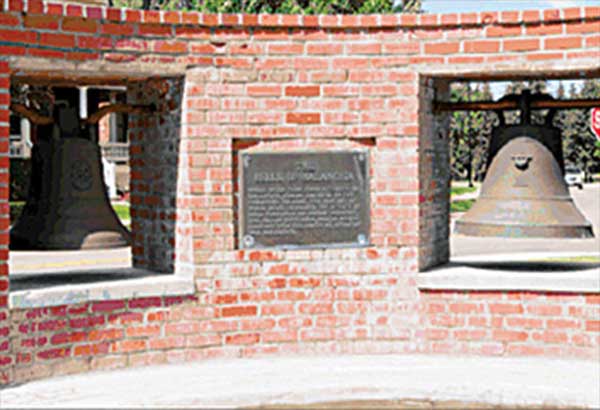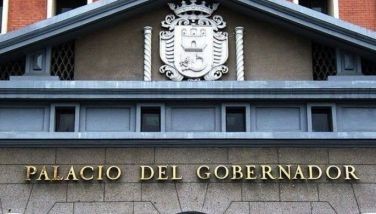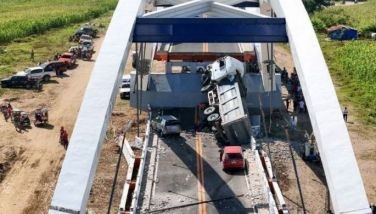US solons object return of Balangiga bells to Philippines due to human rights concerns

In a letter, Reps. Randy Hultgren (R-Illinois) and Jim McGovern (D-Massachusetts)—co-chairs of the Tom Lanthos Human Rights Commission—asked US Defense Secretary Jim Mattis not to provide certification for the return of the bells until the Philippine government puts an end to the extrajudicial killings. File
MANILA, Philippines — Two lawmakers from the United States objected to the potential return of the Balangiga bells to the Philippines, citing the human rights violations linked to the government’s brutal drug war.
In a letter, Reps. Randy Hultgren (R-Illinois) and Jim McGovern (D-Massachusetts)—co-chairs of the Tom Lanthos Human Rights Commission—asked US Defense Secretary Jim Mattis not to provide certification for the return of the bells until the Philippine government puts an end to the extrajudicial killings.
The two lawmakers expressed their “deepest concerns with the human rights record” of the country.
“We recognize and appreciate that the intent of the provision is to resolve in an appropriate way a long-standing, highly symbolic dispute between the United States and the Philippines. However, we ask that as you determine the national security interest of US in this situation, you consider as part of that equation the major human rights violations now facing the Philippines,” Hultgren and McGovern said.
Section 2864 of the Conference Report which accompanies the National Defense Authorization Act of 2018 would allow the transfer of the Balangiga Bells to the Philippines if certain criteria are met, including “that the transfer is in the national security interests of the United States.”
“It is precisely because the Philippines is such a strong and vital American ally that we must consider how their recent human rights record could negatively affect US security,” the two lawmakers said.
They cited the report of the Tom Lantos Human Rights Commission hearing last year, which found out that more than 7,000 alleged drug personalities have been killed without charges or trial since the start of Duterte’s war on drugs.
According to the latest #RealNumbersPH release, there have been 6,309 drug-related deaths from July 1, 2016 to Jan. 17, 2018. Of these cases, 2,235 were tagged as homicide cases under investigation
“We only ask that when you consider Congress’ intent in determining whether such a return meets the United States’ national security interests, you recognize that these extra-judicial killings are a detriment to our security interests,” they said.
Hultgren and McGovern added the defense secretary’s refusal to certify the return of the bells until Duterte takes meaningful measures “would be in the interest of our national security and our role as an internationally recognized leader in the promotion of human rights.”
Ahead of the 31st Association of South East Asian Nations Summit last year, the two lawmakers also urged US President Donald Trump to communicate to Duterte Washington’s “profound concern” over the spate of killings linked to the government’s drug war.
Balangiga bells
In December last year, US Ambassador to the Philippines Sung Kim said Washington remains committed to return the three bells taken from Balangiga, Eastern Samar in the Philippine-American War.
During Duterte’s second State of the Nation Address, he demanded that the US return the bells that American troops seized in 1901 as war booty.
The bells were part of a signal for Filipinos to attack American troops in town on September 28, 1901. The attack, which happened early in the morning, left at least 48 members of the 9th US Infantry Regiment dead.
The Philippines has been trying to have the bells returned since Fidel Ramos was president. A petition to have the bells returned was revived in the wake of Typhoon Yolanda in 2013. Samar was among the islands devastated by the supertyphoon.
Two of the bells are now in a US military base in Cheyenne, Wyoming while another one is at a museum in South Korea.
READ: US working 'very hard' to return Balangiga bells, envoy says
- Latest
- Trending





























